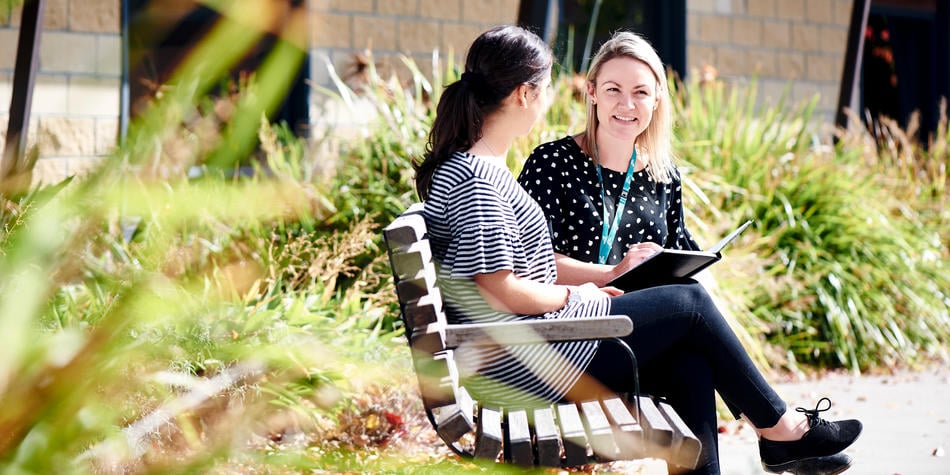Get real-world experience
Warragul local Clare Bjorksten aspired to a career serving regional communities, so when the time came to organise her student work placement, the Bachelor of Public Health and Health Promotion student knew exactly where she wanted to work: the Latrobe Community Health Service.
‘I worked in the National Disability Insurance Scheme (NDIS) team, who meet NDIS participants and develop support plans,’ says the Deakin graduate. ‘Disability is such a huge area and the NDIS is still a very new scheme, and I had great interest in being part of it.’
During her placement Clare worked on a broad range of tasks – and made a meaningful contribution to the organisation. ‘I was working with the community capacity building coordinator going out to special schools and meeting NDIS participants, and I also did a lot of research work,’ she says. ‘It really forced me to take the next step and put all of the theories I’d been studying at university into practice.’
So successful was the placement that Clare was offered a permanent position with the organisation after graduation. ‘I loved my placement and afterwards I was offered a job as a local area coordinator. I’ve recently been promoted to a more senior position.’
Student work placements in action
Like Clare, Deakin’s Bachelor of Health Sciences and Bachelor of Public Health and Health Promotion students can complete a 120-hour student work placement unit in a health-related agency in their final year of study.
The time commitment is flexible, explains Andrea Nazzari, manager of Work Integrated Learning in Deakin’s Faculty of Health. ‘Some students do one or two days a week over the entire trimester, whereas others do it in a block,’ she says. ‘It depends on the requirement of the project you’re working on and your other study commitments.’
What sets Deakin apart is the sheer breadth of student work placement opportunities, which the faculty typically organises on students’ behalf. ‘We organise placements in really varied organisations – big health services, small not for profits, local councils, peak health bodies and private sector organisations,’ Nazzari says. ‘You could work on a project for Barwon Health or Kardinia Health, or on a health promotion initiative at a small health service.’
There’s also the option to complete your placement through Deakin’s FreelancingHUB, which offers internships with not-for-profit and community organisations, and overseas via (remote) connections with the international health team.
‘We offer diverse opportunities to make sure our students find something that appeals to them where they can hone their skills,’ Nazzari says.
We've had students develop published resources that are disseminated across organisations, create and roll out events, and plan and implement initiatives that make a real difference to communities. It's not an imagined opportunity – it’s a tangible opportunity.
Andrea Nazzari
Manager of Work Integrated Learning in Deakin’s Faculty of Health
Kickstart your health sciences career
Deakin’s student work placements help students transfer knowledge and skills to a practical setting and gain real-world experience. ‘It's not the type of placement where students are just in the office doing basic administration work – you’re working on real projects implemented at the different organisations,’ Nazzari says.
Placements also teach soft skills like time management, problem solving and the ability to adapt to workplace cultures – and, as in Clare’s case, provide opportunities for building professional networks.
‘Sometimes students connect with a mentor or potentially get offered a casual, part-time or even ongoing roles,’ Nazzari says. ‘We get some really great feedback from our partners about the calibre and strength of our Deakin students.’
And because health sciences is such a broad field, placement is a great opportunity to sample a niche area of interest before making any big decisions about life after graduation, says Clare. ‘Look for an area that’s of interest to you or something that you could see yourself doing in the future – and just see how you go!’
Improve community health and wellbeing with Deakin’s Bachelor of Health Sciences or Bachelor of Public Health and Health Promotion.

